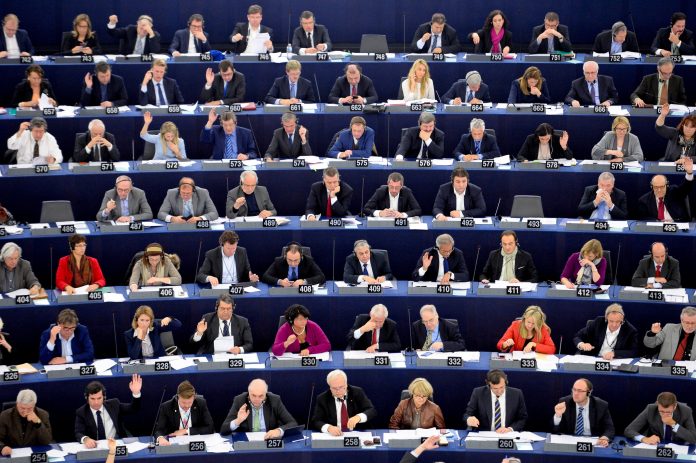The Committee on Constitutional Affairs discussed on Wednesday potential Treaty revisions for EU citizenship and the way forward to the 2024 elections.
The hearing “Towards the European Elections 2024” revolved around voter turnout and political representation in light of potential Treaty reforms. Prof. Steven Van Hecke, associate professor in comparative and EU Politics at the KU Leuven Public Governance Institute, focused on the “democratic deficit” issue, the future of the lead candidate process, and the political implications of relevant Treaty reforms. He highlighted the importance of increasing turnout among first-time voters and to establish truly common electoral rules to turn the 27 European elections into a cohesive democratic exercise. He also referred to the pitfalls of making Treaty reform a prerequisite for EU enlargement.
MrFrancesco Grillo, Visiting Fellow at the European University Institute and Affiliate Professor at Scuola Superiore Sant’Anna of Pisa, presented his proposal for “flexible transnational electoral constituencies”. He advocated for eliminating the fixed number of seats to be allocated to such a constituency as per Parliament’s proposal, arguing for a system that would require member state opt-in to make voting for transnational lists possible for their citizens, who would then decide if they want to vote for national or transnational candidates. This results in seats distributed based on transnational support for each political group.
MEPs raised questions on the broader institutional and political issues linked to a potential reform of electoral rules from an array of ideological and intellectual points of view. Key issues included the lead candidate process and better or alternative ways to elect the Commission President, as well as ways to enrich the EU-wide electoral debate and strengthen the supranational democracy element of the Union.
Later on the same day, MEPs heard from experts on the “Implementation of the Treaty provisions on EU citizenship”. Prof. Teresa Freixes, Jean Monnet ad Personam Professor in Constitutional Law & Vice President of RAED, called for an EU citizenship statute (in line with the proposals of the Conference on the Future of Europe) and presented her analysis on which improvements can already be applied under the existing Treaty framework.
Ms. Assya Kavrakova, Executive Director of the European Citizen Action Service, presented the state of play regarding citizens’ freedoms and political rights in the Union, as well as citizens’ desires for their evolution. She spoke in favour of “crowdsourcing” and the potential benefits of citizens’ e-participation in agenda setting and policy formulation at EU level.
The ensuing discussion focused on the prospect of creating a “full” EU citizenship, through the further development and “streamlining” of the framework, as well as through more citizen education and awareness.

